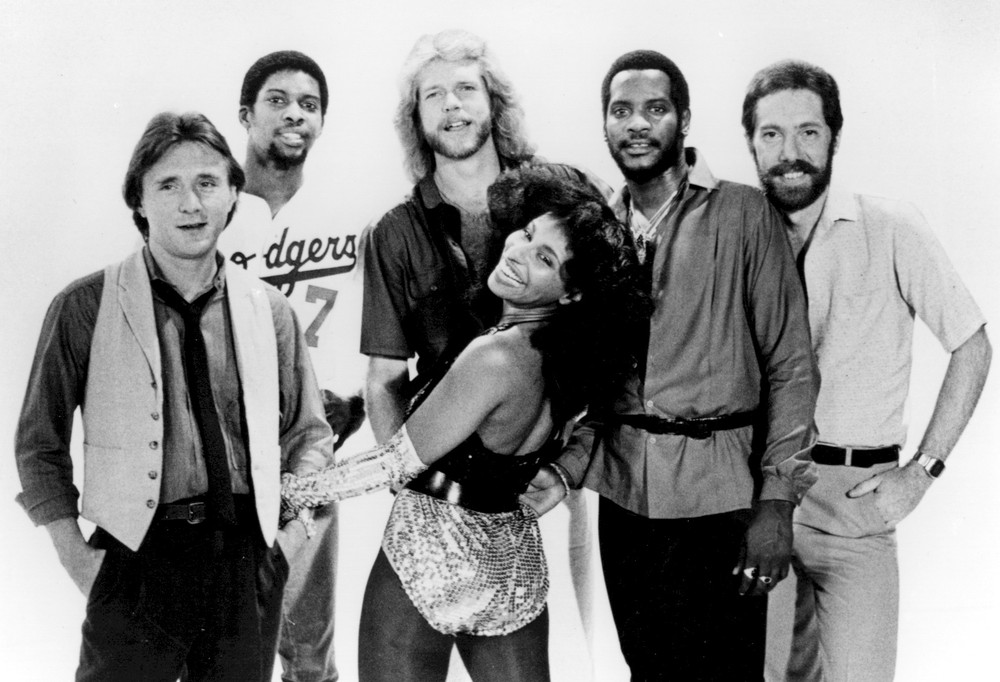Backstage with Lars Ulrich’s Drum Tech: An Insider’s Perspective
For over half a decade, the pulse of Metallica’s iconic sound has been meticulously crafted not only by the legendary drummer Lars Ulrich, but also by the hands and expertise of an unsung hero, Jimmy Clark.
Since joining the Metallica crew in 2014, Jimmy Clark has played an integral role in ensuring that Lars’s drum kit is not just a set of instruments, but an extension of his artistic expression.
We sat down with Jimmy for an exclusive interview, delving into the world of drum teching, the intricate dance between man and machine, and the camaraderie driving the performances of one of rock music’s greatest bands in history.
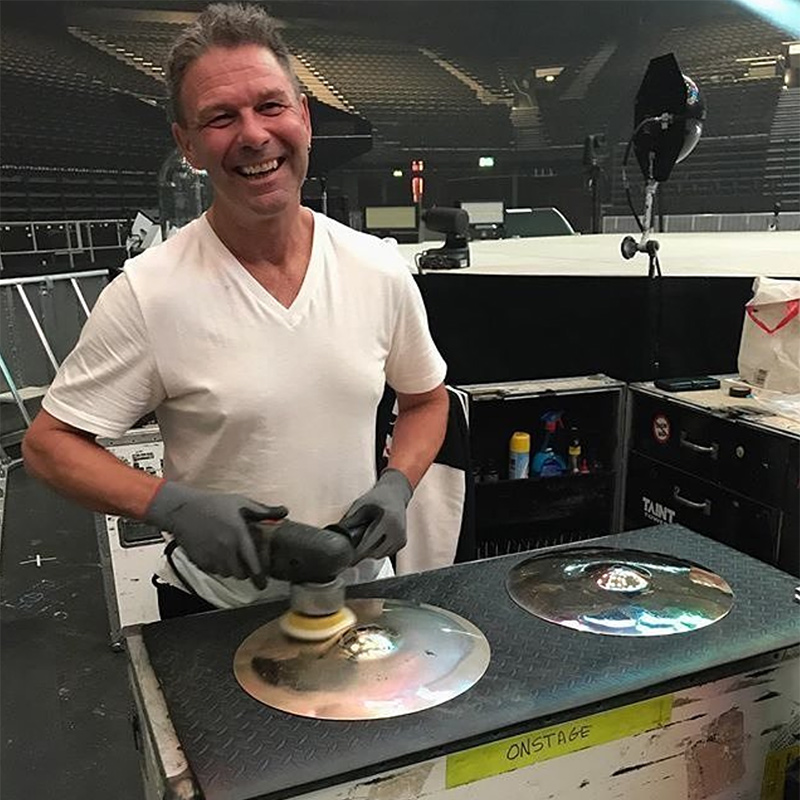
The interview
SK: So, Jimmy, can you share your journey of becoming a drum tech and how you eventually landed the opportunity to work with Lars Ulrich from Metallica?
JC: I joined the Metallica camp in 2014 as first a carpenter/climber before becoming the drum tech in 2015.
SK: As a drum tech for Lars, you must have experienced some incredible moments. Could you share a few memorable highlights from your time working with him?
JC: Being a fan of Metallica’s music, it’s a highlight for me even after 9 years in the camp to still hear them night after night and watch Lars, who still inspires me even at 65 years old. And watching the creation of Hardwired and 72 Seasons was absolutely AMAZING!
SK: Attention to detail is crucial in your role. How do you ensure that Lars’ drum kit is set up precisely to his preferences for each performance?
JC: I met a guy from the Netherlands named Joost Koopmans whose company, JK Drum Systems, puts out a great product called Drum Hooves. These attach to our drum riser for the bass drums and cymbal stands to lock into, allowing me to set up the kit in the exact same position night after night.
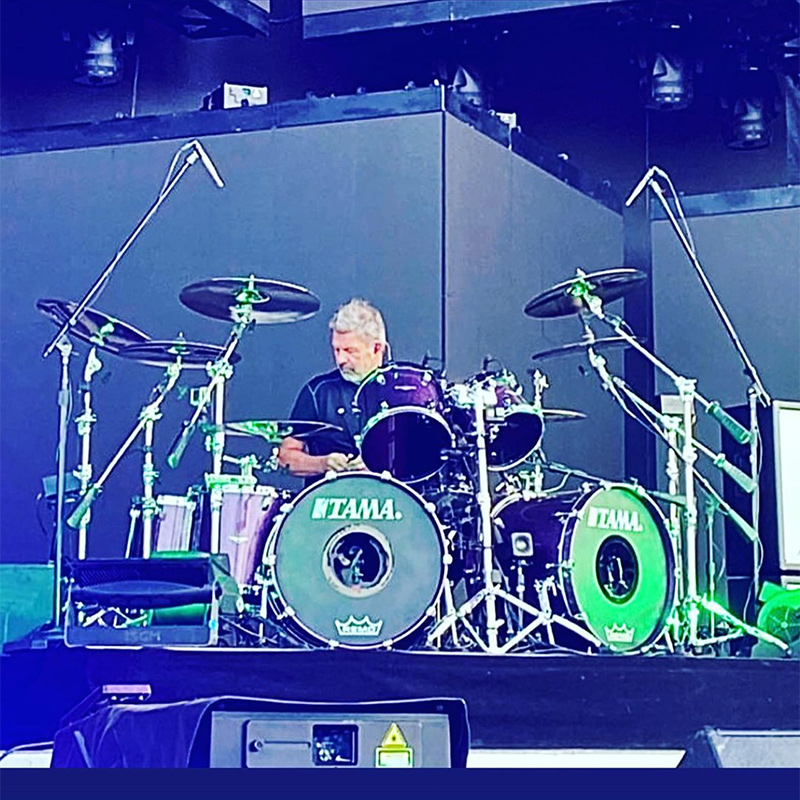
SK: Metallica’s live shows are known for their energy. How do you maintain the reliability and consistency of Lars’ drum kit throughout the tour?
JC: We’ve recently kicked off the 72 Seasons tour. A few days prior to each show, I break down the kit to its shells, allowing them to be cleaned, waxed, oiled, re-headed, reassembled, and meticulously tuned. This entire process spans about 12 hours. Oh, and did I mention I manage four drum sets?
SK: We’ve noticed that you use SlapKlatz drum dampeners. What led you to discover and choose this product, and how does it contribute to Lars’ signature sound?
JC: I found the SlapKlatz in 2016 at a music store in Copenhagen right at the beginning of the Hardwired tour. I like them because just one of them gives Lars’ snare drum a much fatter sound by taking out some of the overtones. Our FOH engineer is also a fan of the sound the SlapKlatz help us get out of the snare drum.
SK: There are various drum dampeners available. What sets SlapKlatz apart in your opinion?
JC: The plastic between each dampener is a game changer. Have you ever tried separating those other ones?
SK: Where and how do you use SlapKlatz drum dampeners on Lars’ kit?
JC: Mostly on the snare drum, but also on the toms whenever we do TV or live recordings, when our producer is involved to help with the mix.
SK: Could you share any behind-the-scenes insights or challenges you face in preparing Lars’ drum kit for studio recordings versus live performances?
JC: Two different worlds for sure. There’s certainly more dampening in the studio for more control to achieve the great drum sound Metallica’s producer Greg Fidelman gets.
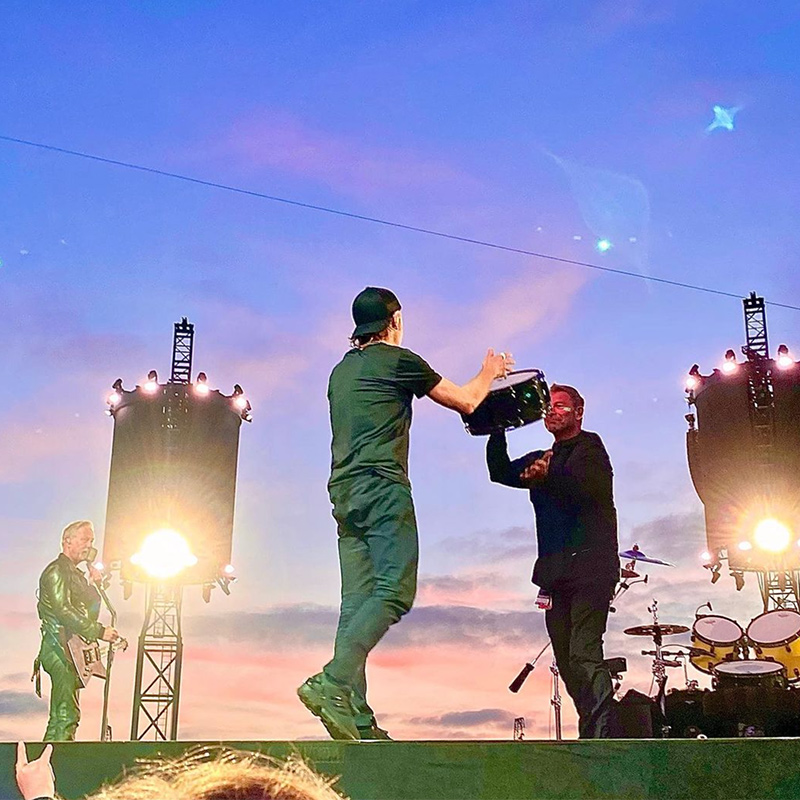
SK: In your role, you work closely with Lars and the band. How do you maintain effective communication and collaboration while on tour?
JC: Speak when spoken to and keep it professional.
SK: Touring can be demanding. Can you share an example of a challenging situation you encountered on the road and how you resolved it to ensure the show went smoothly?
JC: Nothing is a challenge if you know what you’re doing and are quick to respond accordingly to fix it, whether if it’s a broken head or a pedal. Also, know your artist and his or her facial expressions, which Lars is the king of. But now, after years of working together, I know how to read him if there’s a problem or not.
SK: What advice do you have for aspiring drum techs who dream of working with high-profile artists like Lars Ulrich or other major bands?
JC: I’m going to give the same advice that iconic photographer Ross Halfin gives to young and upcoming photographers who ask the same question: Find a young and upcoming local band and start to work with them. You never know who the next Metallica will be.
SK: Apart from your work with Metallica, do you have any personal projects or drumming-related endeavors that you’re passionate about?
JC: I just finished building a soundproof drum room in my home so that I can practice (I still do), as well as I do home recordings for people who needs demos done.

SK: As a vital behind-the-scenes team member, what are some common misconceptions about the role of a drum tech, and what do you wish more people knew about your work?
JC: The days of all-nighters, sex, drugs and rock’n’roll have been replaced by going to the gym, eating well and getting plenty sleep when you can. I put in a lot of hours, but not nearly as much as the rest of the Metallica crew, who work their asses off – which is why they are the best in the business.
SK: How do you see drum technology evolving in the future, and what role do you believe products like SlapKlatz will play in shaping the industry?
JC: I think the SlapKlatz are very helpful for any drummer to tune and achieve the sound they are looking for, whether it be dry or more lively but without the overtones.
SK: It’s time to wrap up this interview, so lastly: Is there any special message or advice you’d like to give to drummers and drum techs who are fans of Metallica or aspire to work in the music industry?
JC: Be passionate about what you do. If you’re lucky enough to ever get the opportunity to work with a major artist like Lars Ulrich, these people rely on you to make them sound good. Do your best no matter what the situation is to make your artist look and sound the best they can be. And always approach each day on the job with a positive attitude. Whenever I’m asked how my day is going, I always say… BEST DAY EVER! When people ask why, I say… Do you really want to hear me complain?
SK: Thank you so much to Jimmy Clark for this. It’s been great learning from your experiences. Your advice and stories about working with Metallica are truly inspiring! We appreciate your time and insights, and your devotion to our product.
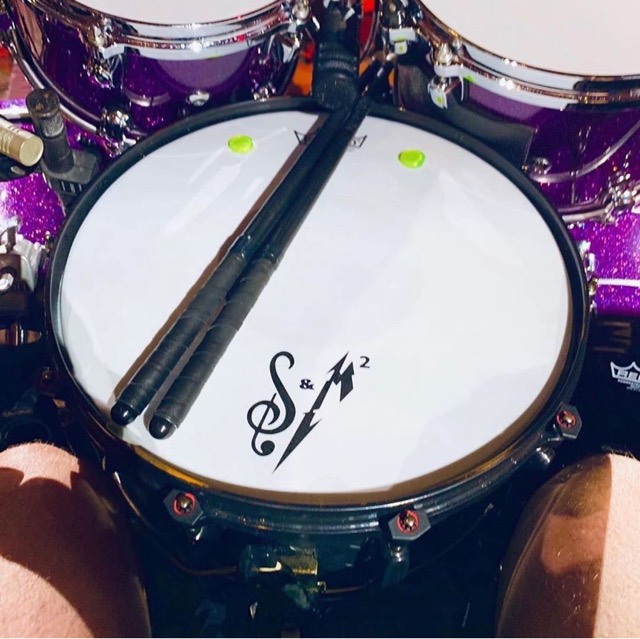
More drum related stuff to read
Have you read this interview with John JR Robinson: Stories behind the biggest hits ?
